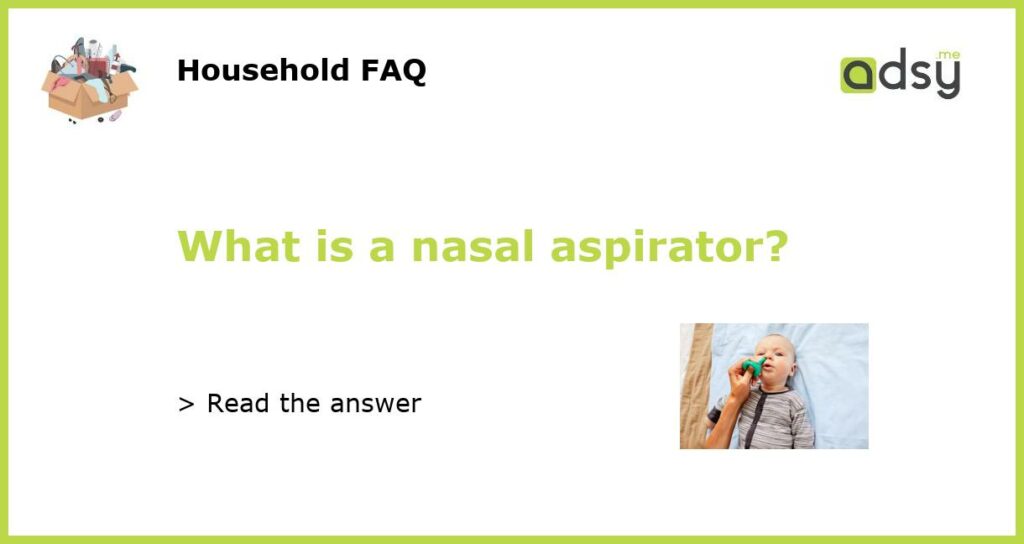What is a Nasal Aspirator?
A nasal aspirator, also known as a nasal bulb, is a medical device used to clear congestion in the nasal passages of infants and young children. The device consists of a small, bulb-shaped syringe with a soft, flexible tip that is inserted into the nostril. When the bulb is squeezed, a vacuum is created that draws out nasal secretions and mucus.
How Does a Nasal Aspirator Work?
Nasal aspirators work by creating suction to remove mucus and other nasal secretions from a baby’s nose. The process is relatively simple – you insert the tip of the aspirator into one nostril while plugging the other nostril with your finger. Then, you compress the bulb of the aspirator so that it is fully deflated. Finally, you slowly release the pressure on the bulb, allowing it to fill up with air and draw mucus out of the nostril.
Why Use a Nasal Aspirator?
Babies and young children are at a higher risk of developing respiratory infections because their immune systems are not fully developed. Nasal congestion can also interfere with feeding and sleeping, causing irritability and discomfort. Using a nasal aspirator can help alleviate these symptoms by removing excess mucus and allowing babies to breathe more easily.
Types of Nasal Aspirators
There are several types of nasal aspirators on the market, including bulb syringes, electric aspirators, and saline nasal sprays. Bulb syringes are the most common type of nasal aspirator and are often provided in hospital care packages for new mothers. Electric aspirators are battery-powered and provide a more controlled suction for nasal congestion. Saline nasal sprays work by moistening the nasal passages, making it easier for mucus to be expelled from the nose.
How to Use a Nasal Aspirator Safely
While nasal aspirators are generally safe to use, there are a few precautions to keep in mind. Always use a clean, sterile aspirator to prevent the spread of infection. Do not use an aspirator too frequently, as overuse can irritate the nasal tissue and cause swelling. If your baby’s nasal discharge is thick or discolored, or if they are running a fever, consult a healthcare professional as these may be signs of a more serious respiratory infection.






